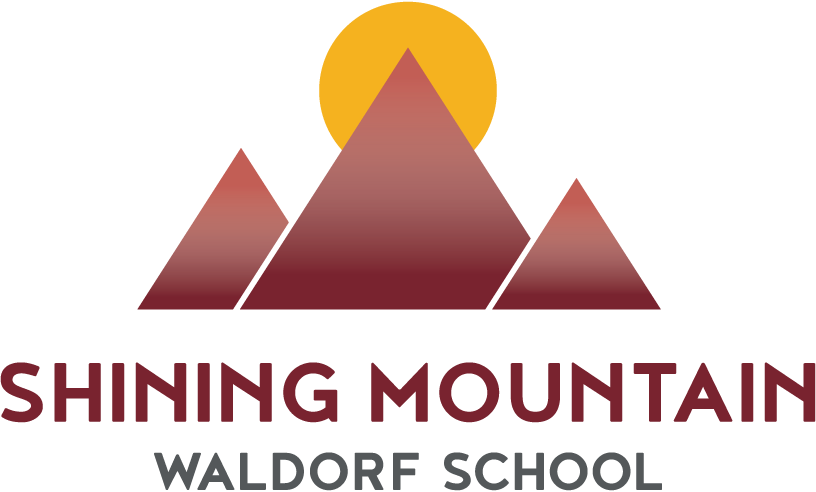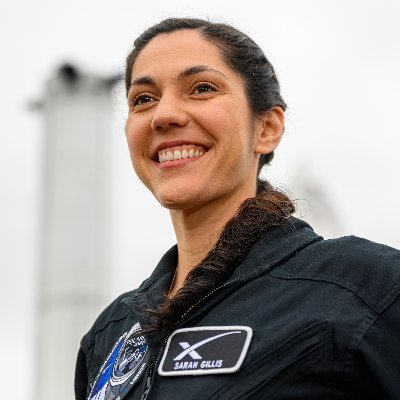On Interviewing Sarah Gillis, Shining Mountain Waldorf School Class of 2012, about how Waldorf education helped her develop curiosity, creativity, and imagination to become a successful engineer and problem-solver. Complete interview video and transcript here.
by Annabelle Boak
The wall behind us was mottled with luminous pink and purple, and superimposed on its artistic cacophony was an astronaut, presumably taking their first steps into the unknown. Although the atmosphere in the common room of the CU Boulder Engineering Aerospace building was decidedly relaxed, with the scholars winding down their strenuous days with some engrossing engineering homework, my consciousness was not in any state of serenity, and entirely antithetical to my current environment. My nerves were due to my rapidly approaching interview with astronaut and Shining Mountain alum, Sarah Gillis.
Interviewing an Astronaut
“I feel like one of the really important things that you get out of a Waldorf education is curiosity—curiosity to go and learn and explore what’s out there in the world. I fell into engineering and a path that I don’t think I would have anticipated, but having an arts background where you’re bringing creativity and imagination into problem solving, there’s a really incredible synergy between those.”
Those words were spoken by Sarah Gillis, a SMWS alum who I had the pleasure of interviewing in November 2022. I felt deeply honored to have been given such an opportunity, although in the moments leading up to the interview, I forgot this honor. I was petrified, slightly nauseous, and those sage words were the last things on my mind.
Overcoming Fear
The symptoms of nerves, although not alien to me in any respect, were just as excruciating now as that first time I stepped out onto the stage to play a solicitous pioneer woman and an obstinate donkey. They were the same ailments I experienced every time I went to speak in front of the class, and the same afflictions that would cause me to become as high strung as my viola each time I played it in a recital.
When Sarah Gillis’s feet finally led her to me, I felt as though my sigh of relief – the one present when it was verified that there were, in fact, no mobs of eager journalists watching our interview – had been channelled into the inflation of a thick, opaque balloon that bulged around my brain and encumbered my every thought.
I imagined what a story it would make if I stumbled over a serpentine chord and damaged the camera equipment, or if I sat on my microphone and shattered its microscopic mechanisms. I braced myself for the making of an epic embarrassment story, the kind of tale my imagined children would love to hear again and again until the sound of their laughter blurred with the noise of the day, and they fell asleep. The kind of tale that had nourished my love of writing, as my parents rehashed their childhoods until my own infantile consciousness had lulled into dreams
And then, just as the interview commenced, something really did break.
But it wasn’t something visible, or even something tangible. It was the carefully concealed vessel of belief that lay nestled in my chest.
Suddenly my disposition was illuminated, its lethal edges sharpened. In a transformation reminiscent of every class play and performance I had participated in, my nerves subsided to a comforting buzz, and I was enabled to forge forward without fear.
Time to Get to Work
This revelation quelled the clamoring voices of my fabricated young in my mind. Mama had work to do, and their hunger for hilarity could wait. Departing from them for a while, I whispered as I stroked their phantom locks, could only do us all some good. Whether it be years, or even decades, we would be better together in a different time. Their piteous whinings dissipated as they discovered they could not extract any familial lore from this night.
Except that wasn’t at all true. This evening might not have produced any anecdote suitable for entertaining a rambunctious toddler, but the essence of a lesson for an older child could be wrung from this experience. I might not be able to tell them about the time my clumsiness reached its bumbling pinnacle, but I could regale them with the story of the time when those allegedly irritating class plays, and ostensibly annoying reports lifted me to an apex of experience where speaking authentically in front of others no longer terrified me.
The tale might not entertain a toddler, but it was instilled with the rudimentary core of my childhood, the blazing tongue of my future, and all the ideals of my magical education.
A Source of Inspiration
As I put pen to paper [to write this essay about my experience], I discovered a blind spot in my mind. Molding my true experience into a digestible course for the reader demonstrated a considerable polarity to constructing fictional worlds, arming nonexistent people with passports and identities. I struggled to spill my thoughts onto the page. I was experiencing a drought of useful material, with only fanciful metaphors coming to my mind.
Interviewing Sarah was a source of inspiration. She is a record-breaker, a game-changer. She humbly expressed her gratitude towards all of her teachers, thanking them for the crucial roles they played in her life. Her veneration towards her colleagues was incredible to witness. She dedicated a question about her role model(s) to her grandmothers, describing their docile yet inexorable strength. Every word she spoke was rooted in humility, in recognition of the correlation between herself and every being that ever touched her path.
Everyone has dreams, “impossible” dreams, throughout their lifetime. One might envision a future of celebrity. Another might daydream about discovering the cure for cancer. Presidents and athletes crowd the stage. I myself picture a world which is somehow, even slightly, bettered by my words. These fantasies are said to be impossible. In many cases, they are quashed from the embryonic stages to ground the dreamer in “reality”. But speaking to Sarah made me realize just how vital these dreams are; she is yet another animation of the adage, “anything is possible”. The skies weren’t the limit for her, just as they aren’t for anyone.
—Annabelle Boak is currently an 8th grade student at Shining Mountain Waldorf School. Complete interview video and transcript here.

